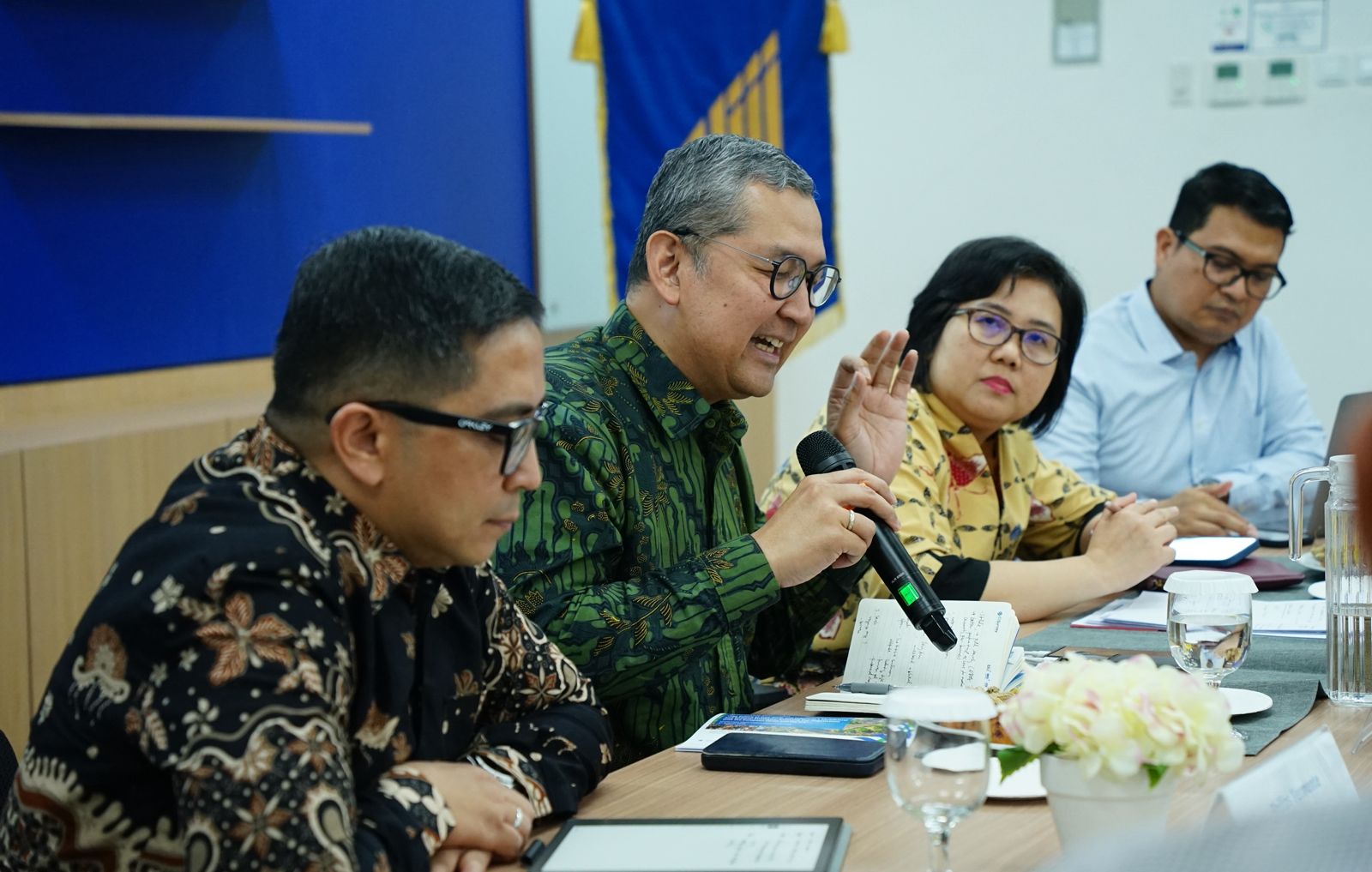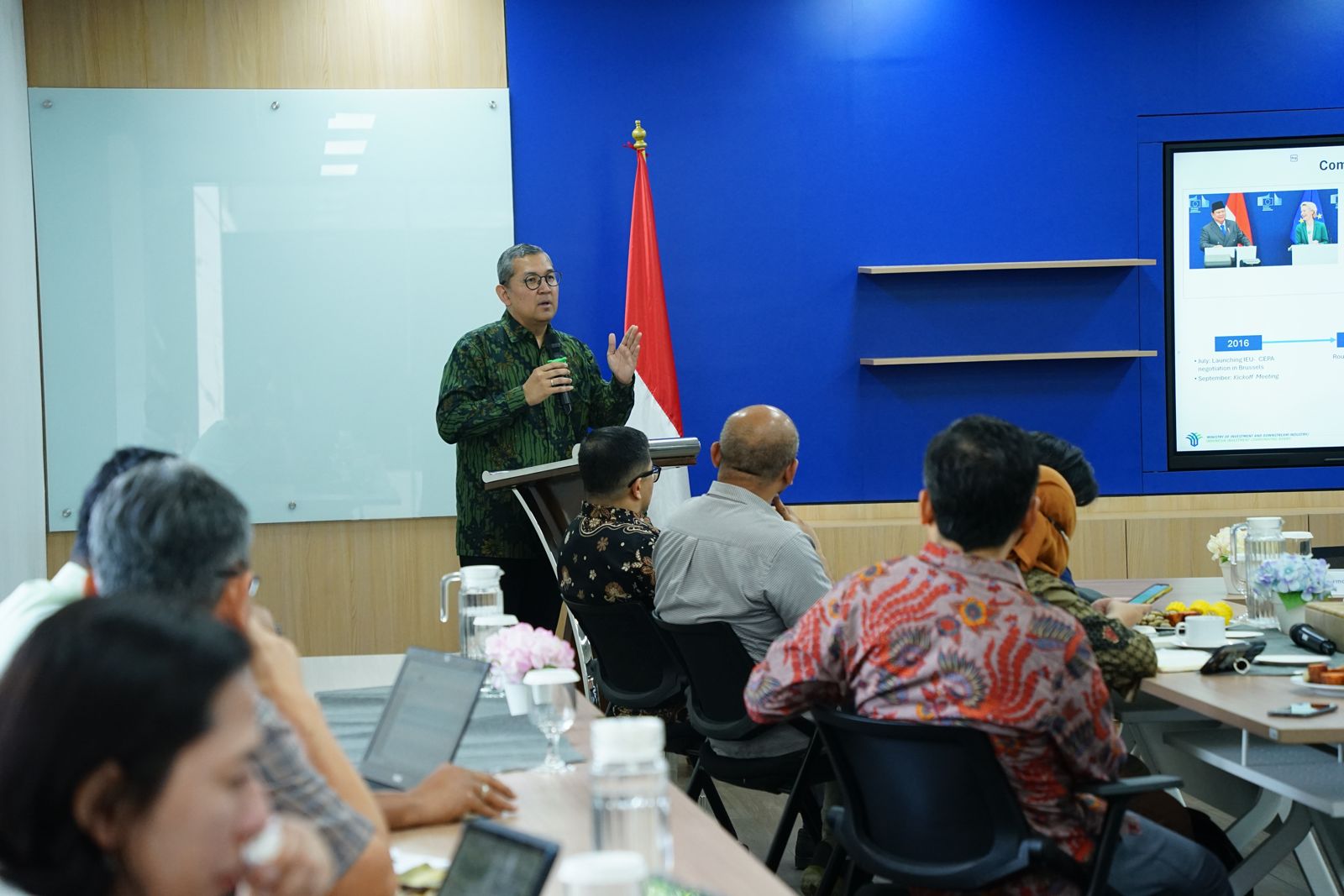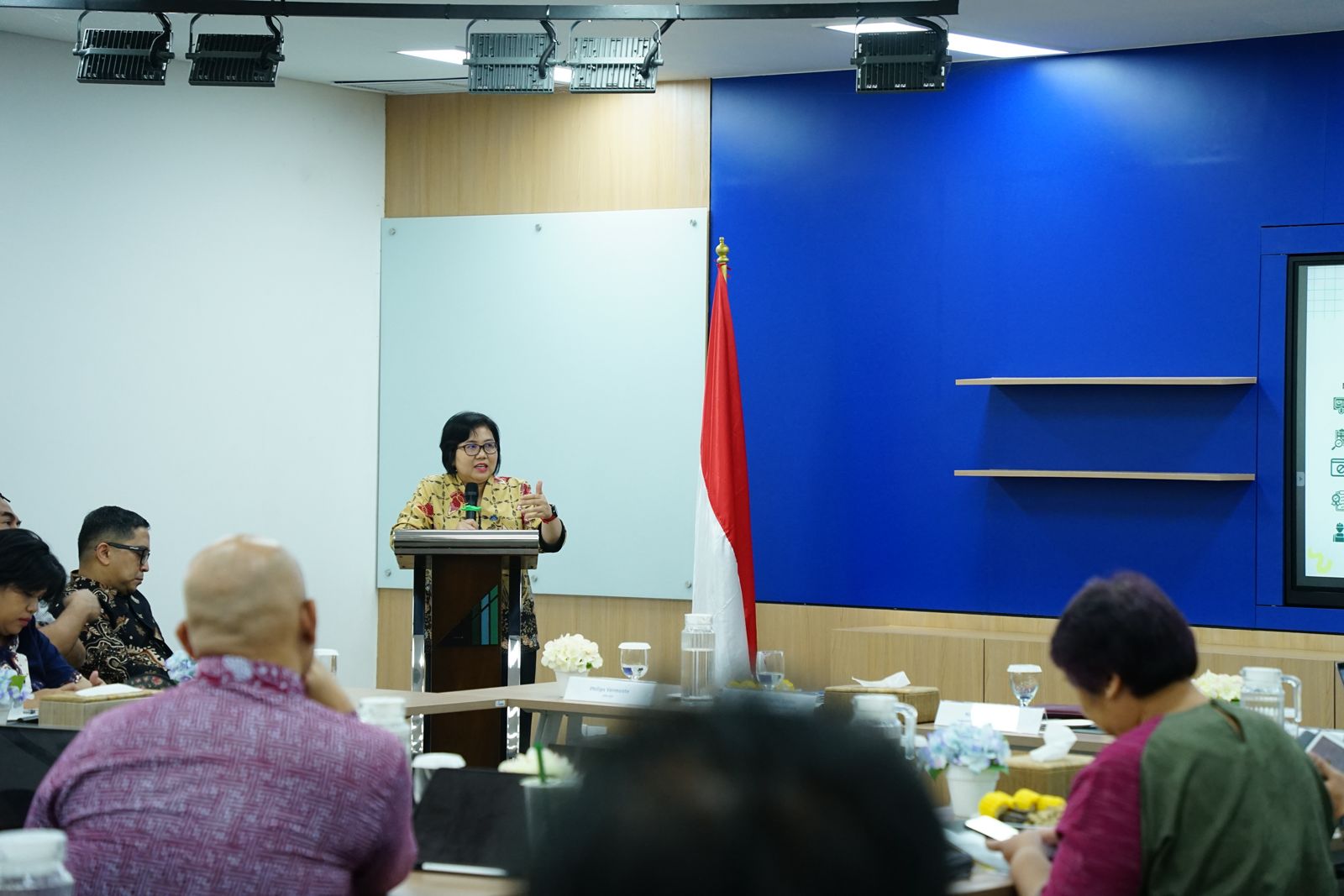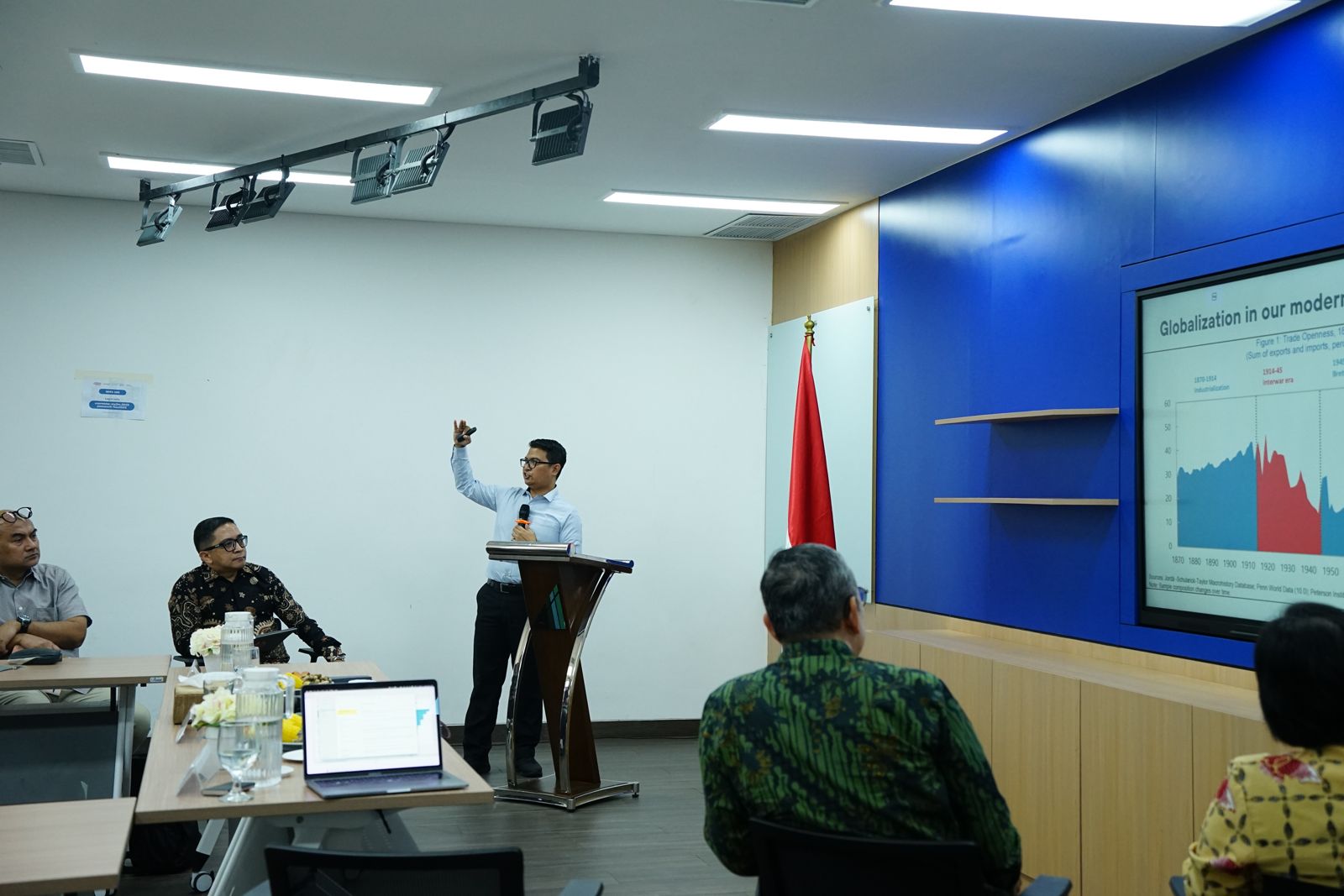August 4, 2025
Contributor: Supriyono | Editor: Dadi Darmadi | Photo: Sarah Permatasari

Depok, Indonesia — The Indonesian Institute for Foreign Affairs (IIFA) at Universitas Islam Internasional Indonesia (UIII) held the third installment of its IIFA Discussion Series, on August 4, 2025, convening experts in trade policy and international relations to critically reflect on Indonesia’s evolving position in global trade.
The roundtable discussion focused on Indonesia’s multilateral and bilateral negotiations with the European Union and the United States. It offered a timely space to explore the challenges and opportunities in navigating global trade dynamics while advancing Indonesia’s strategic and economic interests.
Highlighting the urgency of the topic, Philips J. Vermonte, Ph.D., Dean of the Faculty of Social Sciences at UIII, opened the roundtable by stressing that Indonesia, as a middle power, must navigate increasingly complex global trade dynamics. “We are entering a new world where multilateralism is being pushed into the back seat, and bilateralism is becoming the new norm,” he stated.

This shift, Dean Vermonte noted, often places countries like Indonesia in asymmetrical power relations with larger nations. In such a landscape, the role of institutions such as the Ministry of Foreign Affairs and the Investment Coordinating Board becomes critical.
Held under the Chatham House Rule, the discussion featured three key speakers: Prof. Tirta Nugraha Mursitama, Deputy for Investment Cooperation at the Ministry of Investment/Investment Coordinating Board (BKPM); Dr. Nidya Kartikasari, Director for American and European Intra- and Inter-regional Cooperation at the Ministry of Foreign Affairs; and Dr. Teguh Yudo Wicaksono, lecturer at UIII’s Faculty of Economics and Business and Fellow of IIFA.

Prof. Mursitama discussed about the global trends of international cooperation and Indonesia’s multilateral trade and investment strategies. He also delved into the update on the Indonesia-European Union Comprehensive Economic Partnership Agreement (IEU-CEPA), the implications of U.S. reciprocal tariff policies on Indonesian exports, and Indonesia’s potential leverage through a framework for reciprocal trade agreements.
Dr. Nidya Kartikasari addressed key trade issues such as non-tariff barriers (NTBs), Indonesia–EU trade relations, IEU-CEPA, and the prospects of a United States–Indonesia Reciprocal Trade Agreement. Meanwhile, Dr. Teguh Yudo Wicaksono highlighted the potential long-lasting impact of Trump-era trade policies, the call for urgent reform in the global trade system to address structural imbalances.

Although the specifics of the discussion remain confidential, the roundtable facilitated a dynamic exchange of ideas on Indonesia’s strategic posture in a shifting global trade landscape. The IIFA Discussion Series continues to offer a unique space for practitioners, policymakers, and scholars to engage in meaningful dialogue on foreign policy issues that shape Indonesia’s role on the world stage.
Universitas Islam Internasional Indonesia